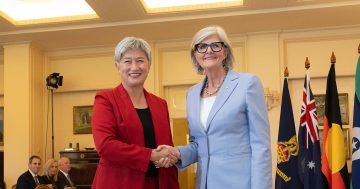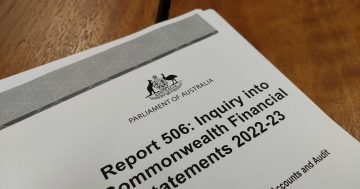
The Department of Foreign Affairs and Trade hasn’t kept on top of passport applications, ANAO has found. Photo: DFAT.
The Department of Foreign Affairs and Trade has not kept up with passport demands since the COVID pandemic hit and it is maintaining a system that is disconnected from its customers.
That’s the upshot of an Australian National Audit Office review of DFAT’s Australian Passport Office.
The audit report has just been tabled in the Federal Parliament and has found services and processes to be significantly flawed.
Of the 3.1 million passports issued during the 2022-23 financial year, 24 per cent took more than six weeks to be processed.
And there were 56 per cent fewer applications processed per employee than were processed before the pandemic closed international borders.
For priority passports, the audit found the 20-hour time expected to process them was only met for 17 per cent of applicants, with 73,796 taking far longer.
Some priority passport applicants were also overcharged, with DFAT having already refunded a small portion and more likely to follow.
The office failed its own target of processing 95 per cent of passport applications within 10 business days and only managed to process 61 per cent of applications by that deadline.
“DFAT has not been efficiently delivering passport services,” the audit report states.
“While the department has timeframe targets for processing applications, those targets are not customer-focused and are not being consistently met.
“There are no resource efficiency targets; the average cost to produce a passport has increased more than the increase in the price of labour; and staff efficiency, which was improving up until the COVID-19 pandemic, has deteriorated since the international border was reopened.
“Processes are partly in place for the efficient processing of passport applications. The arrangements focus on timeliness of processing with insufficient attention given to resource efficiency.
“In addition, the department’s approach is not sufficiently customer-focused.”
The audit found calculations of the time taken to process passport applications do not reflect the full amount of time experienced by citizens from when they lodge their application to when they receive a passport.
It also noted that DFAT does not centrally capture and analyse all complaints received to identify improvement opportunities.
“The department’s performance in processing priority applications has declined over time,” the report states.
“DFAT’s resource efficiency has declined when considered in terms of the average cost to process passport applications and the average number of passport applications processed per full-time equivalent staff member (Australian Public Service employees plus contractors).
“Additional staff to process applications once the international border reopened were not engaged and trained in time to avoid a significant processing backlog developing.”
DFAT’s acting secretary at the time Craig Maclachlan responded to the audit in writing, accepting the findings and recommendations.
“DFAT is committed to improving passport services and accepts the recommendations in the proposed report in full,” he wrote.
“The department is pursuing initiatives that address, and in many cases go beyond, the recommendations of this report.”
The ANAO’s recommendations are that DFAT:
- Improve its performance measures to include an explicit focus on the time it takes from an applicant perspective from the lodgement of an application through to the receipt or collection of a passport
- Establish and report on performance measures that address the efficiency with which it uses resources in processing passport applications
- Improve the processing of passport applications by equipping Austrade staff with responsibility for delivery of passport services in overseas locations with the same access to passport systems as is provided to its departmental officers in overseas locations
- Improve its complaints handling for passports processing by:
- Expanding the capture of complaints data to include all relevant channels including the Passport Enquiries inbox as well as from third-party service providers
- Recording passport complaints received via any channel in an electronic system capable of producing complaint data that is reliable and complete.
- Improve transparency over its passport application processing by improving its systems to expand its published processing time to the number of consecutive business days that applicants can expect their passport to take from application submission to passport receipt
- Ensure any methodology changes that impact on reported performance, and the rationale for the changes, are explained in reporting
- Provide refunds of the priority processing fee paid by all applicants where the department does not meet the processing timeframe advertised for those applications
- Analyse its use of manual holds to identify the factors causing these to occur and opportunities to improve its time efficiency in processing passport applications. The department should seek to minimise the number of applications that are placed on hold, and the time they spend on hold
- Adopt an activity-based costing approach to reporting on the cost of the department providing passport services.
Original Article published by Chris Johnson on Riotact.











